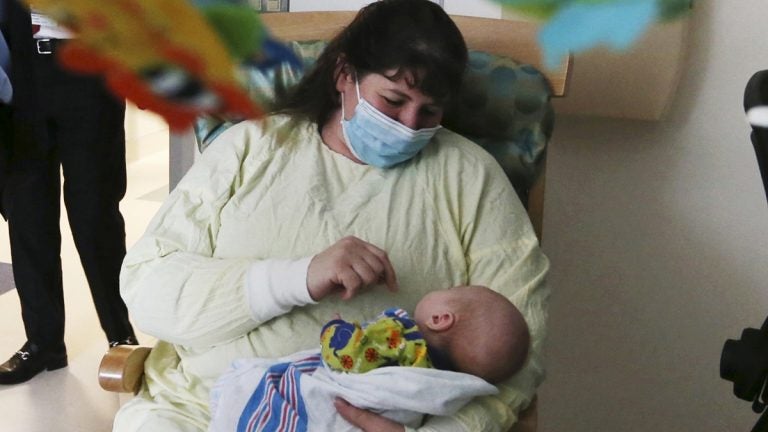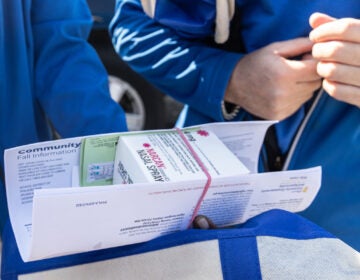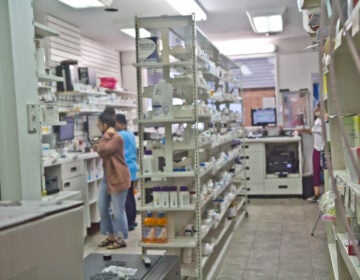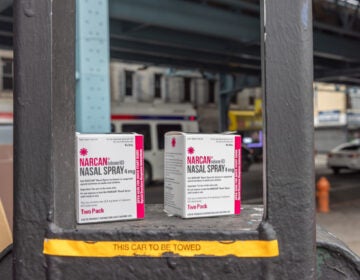As rate of infants exposed to opioids rises, N.J. urging pregnant substance abusers to get help
Since 2008, the number of babies born with neonatal abstinence syndrome has doubled in the Garden State.

A woman holds her 49-day-old grandson who was being treated for neonatal drug withdrawal after his mother took opioids during pregnancy. The baby was treated at the Neonatal Intensive Care Unit at Jersey Shore University Medical Center in Neptune Township, New Jersey. (Mel Evans/AP Photo)
Across the country, states are grappling with rising numbers of newborns suffering from their mothers’ use of drugs or alcohol. New Jersey is no exception. Since 2008, the number of babies born with neonatal abstinence syndrome has doubled. In 2016, 685 babies were affected in the Garden State.
When babies are exposed to opioids in the womb, they’re at a higher risk of birth defects and withdrawal symptoms, such as seizures and vomiting. But the sooner the mother and baby get treatment, the better health outcomes can be.
So the state has launched a campaign — “Help yourself. Help Your Baby. Get Treated” — aimed at pregnant women in active addiction.
“The campaign’s goal is to encourage pregnant women to get addiction treatment to reduce the impacts on their unborn child,” said Colette Lamothe-Galette, director of the state’s Office of Population Health.
Of pregnant women suffering from addiction, 60 percent have issues with heroin, according to current estimates.
“What we’re doing is distributing awareness materials, targeting corner store and bus advertising. We’ve launched a social media campaign,” Lamothe-Galette said.
The state also will encourage health care providers to treat patients with opioid dependency immediately and talk to pregnant women about their opioid use during all prenatal checkups.
“It’s an alarming rate of increase, and we need to work collaboratively to ensure that that number goes down,” said Lamothe-Galette.
Pennsylvania just started tracking neonatal abstinence syndrome this year. Since January, 426 newborns have been diagnosed.
WHYY is your source for fact-based, in-depth journalism and information. As a nonprofit organization, we rely on financial support from readers like you. Please give today.




